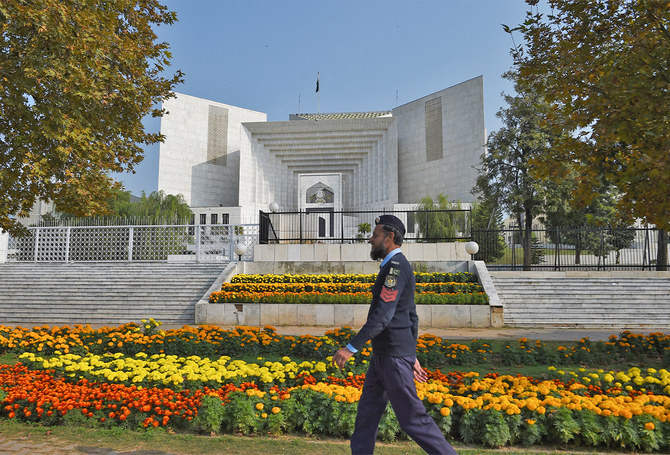
The accountability courts returned dozens of references against public office holders, including politicians, in light of the recent amendments in the accountability laws, but their fate is still dependent on the outcome of the Supreme Court proceedings on PTI chief Imran Khan's petition challenging the tweaks.
A three-judge special bench of the apex court led by Chief Justice of Pakistan Umar Ata Bandial and comprising Justice Ijaz ul Ahsan and Justice Syed Mansoor Ali Shah is hearing Imran Khan’s petition.
Khawaja Haris is arguing on behalf of the PTI Chief. The federal government has engaged Makhdoom Ali Khan to defend these amendments.
During the previous hearings, it was witnessed that the judges’ opinion is divided on these amendments.
The bench has already issued notices to the respondents on Imran's plea to suspend to the effects of these amendments until its final judgment.
Meanwhile, a member of the former prime minister’s team has expressed concerns over the development regarding the returning of dozen of references across the country.
Read: Govt asks SC to dismiss Imran's petition against NAB tweaks
The legal eagle said that they were hoping that any such inevitably anticipated action would be subject to the final order of the apex court.
“However, it was unbelievable that one of the members of the bench would resist passing of even such an innocuous order.”
It is to be noted that during the first hearing, CJP Bandial was about to pass such an order but Justice Syed Mansoor Ali Shah — a member of the bench – was not in favour of it, wondering as to how such an order could be passed on the legislation. Later, CJP agreed with him.
The member of Imran's legal team further said that in the NRO case, such an order was passed in the first instance by a bench headed by ex-CJP Iftikhar Chaudhary then he was deposed and bench headed by de facto CJP Abdul Hameed Dogar withdrew that order.
However, when the NRO case was ultimately decided, all actions taken thereunder were elaborately ordered to be reversed.
"I believe by having these references returned, one essential part of Imran Khan's petition stands established. Now the court only needs to decide if this is in accordance with the constitution and fundamental rights guaranteed to people of Pakistan,” said the team member.
“If the Supreme Court concludes that accountability is not part of people’s right to life, it should simply dismiss the petition, which will be tantamount to allowing corruption."
Sources said that PTI’s legal team was surprised over the bench's reluctance to pass an order which was not a stay but simply notifying relevant stakeholders that whatever action was taken under the new amendments would be subject to final order of the apex court in other words.
Also read: Imran assails NAB law tweaks
However, one member of the federal government in this case believes that legally Imran Khan has “no case” and his petition would be dismissed.
He reckoned that this case is not about whether particular amendments in law will encourage or deter corruption in the country, stressing that the issue at hand was that whether the law made by parliament can be repealed or struck down by the
SC and whether the old law can be revived.
The effect of the revival would be that corruption would not be eradicated by the law made by parliament but also by the three members of the bench. He said that SC initiating suo motu proceedings cannot legislate on a certain issue. Before 1997, corruption was not permissible in the country.
The motive of Ahtisaab Act 1997 and the NAB law was to target political opponents and their business supporters.
A government legal team states that if the court accepts Imran Khan’s petition then it would be considered that it is entering the political arena and crossing its judicial limits and taking the role of the parliament.
Interestingly, it was learnt that above 70 per cent of references were returned on account of legislation which was initially introduced by PTI government through presidential ordinances.
Meanwhile, during the hearings, Justice Syed Mansoor Ali Shah is raising questions on the maintainability of this petition. On the other hand, Justice Ijaz ul Ahsan questions the applicability of these amendments retrospectively as well as the competence of legislatures to carry out such legislation, which is allegedly persons-specific.
Nonetheless, CJP Umar Ata Bandial's opinion will be decisive. He is concerned as to how the NAB severely affected the national economy. However, he is more concerned about ensuring a fair trial wherein the prosecution could establish its case.
The CJP has also questioned whether recent amendments would give narrow margin to the prosecution to establish its case.
After CJP's speech on the eve of new Judicial Year on September 12, a has also started on the final outcome of Imran’s petition.
Legal opinion
Hafiz Ahsaan Ahmad Khokhar said that though parliament has absolute constitutional mandate and prorogation to pass any legislation as being a new law or may introduce amendments in the existing laws with the majority of its members which in the present scenario has now made 27 major amendments in NAB Ordinance 1999 during August 2022.
He said that even it was returned by the president with his observations to parliament after passing its first phase, but despite that, the parliament again passed through its joint session as per the constitutional process defined under Article 75 (2) of the Constitution with majority.
“And now the newly-introduced amendments in NAB law have become the law of land and legally in field, and presently the NAB courts are legally justified to return the references being without jurisdiction, as if it falls in any category of new amendments, as being existing law of the land, when particularly there is as well no restraining order against such newly introduced NAB amendments despite challenging the same through constitutional petition under Article 184 (3) of the Constitution in apex court.”
He said in the wake of the amendments, several provisions of NAB law have become more important, especially those pertaining to cognizance, jurisdiction, investigation, procedures, and trials where there is now clear exclusion clauses of jurisdiction have been introduced both for NAB being as an institution on certain categories of offences but also has given a legal effects to the jurisdiction of NAB courts on pending proceedings and references, as the parliament has given the effect of new amendments both on the pending proceedings before NAB and NAB courts with retrospective effect from 1985 to onwards as per language of section (1) of sub section (2) of the new amendment introduced in NAB Ordinance 1999, resultantly the pending references are being returned by NAB courts under different provisions of law especially under the new section 4 and 9 of the NAB Ordinance.
"Number of amendments introduced by the previous government has also been made part of existing NAB law by the present government, but there are certain amendments introduced by the present government by giving the retrospective effect relating to application of NAB law and with reference to culpability of offences redefined in new section 4 (1) (2) (3) (4) (5) (6), the definition and cognizance of corruption and corruption practices again redefined in section 9, the definition and implication of Benamidar and the waiver of such provision of international mutual legal assistance mentioned in section 19 of NAB Ordinance, and these new amendments would be a moot point for legal consideration in legal battle before the upcoming proceedings of the Supreme Court, where the matter is already pending" he added.
Hafiz Ahsaan Khokhar also said that since the inception of NAB legislation, the role and performance of NAB as an institution has been severely under criticism not by the affecters but also by the experts and courts, and this criticism has well reasons grounds both for initiation of cases, investigation & plea bargaining and on the prosecution and trials sides."There has also been simultaneously widely reported consistently in different media sections that NAB as an institution or their officials had misused their mandate, authority and NAB as institution been involved in amendments have been made in this backdrop but to some extent it could be considered as reactionary for the previous role, actions and performance of NAB."
Hafiz Ahsaan Ahmad said that as the new amendments were challenged soon after their promulgation and notification before the Supreme Court, and after few hearings, it has been cognizant by the apex court while issuing notices to the federation, attorney general and other respondents, thus the decision of would have a great legal impact and would start from such date when such amendments were passed by the parliament in August 2022 on action or inaction being performed either now by NAB for closing the cases or by NAB courts, especially the returning of references on grounds of exclusion of jurisdiction by NAB courts.
According to him, the actions made by the authorities and by NAB courts during the period from such introduction of NAB amendments since August 2022 up to the time of the decision of the Supreme Court would be subject to the final verdict and outcome of the pending proceedings of Supreme Court of Pakistan.






1732688687-5/Copy-of-Untitled-(95)1732688687-5-270x192.webp)
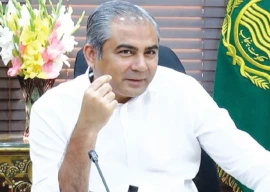

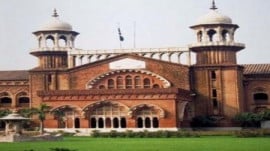

1732617223-0/Untitled-design-(69)1732617223-0-270x192.webp)
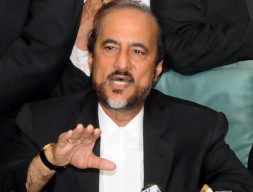
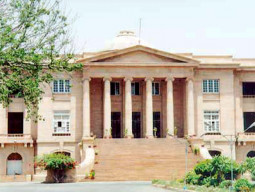
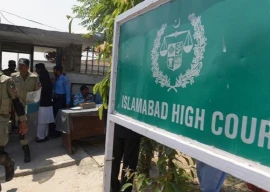






COMMENTS (1)
Comments are moderated and generally will be posted if they are on-topic and not abusive.
For more information, please see our Comments FAQ